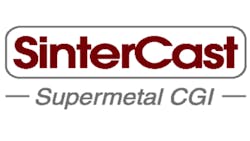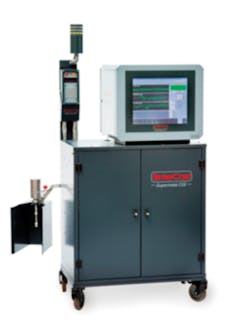Jiangling Motors Corporation Ltd. will install a lab-scale version of the SinterCast process control technology for compacted graphite iron, following a recent technology supply agreement. SinterCast will deliver its Mini-System 3000 to JMC’s foundry in Nanchang, China, where it will support development of CGI castings for diesel engine blocks and cylinder heads.
"This order marks our sixth installation in China, broadening our presence and our brand awareness in the world's largest commercial vehicle market,” stated SinterCast president and CEO, Dr. Steve Dawson.
China’s FAW Foundry made a similar installation in 2010.
With 49% ownership by Ford Motor Co., JMC is one of China’s largest suppliers of diesel-powered vans, busses, and light-duty trucks. “We are pleased that our longstanding support of CGI development in China, combined with our commitment to local commercial and technical support, has led to JMC's decision to adopt our technology," according to Dawson.
Diesel engines are among the most common commercial applications for CGI – a lightweight alternative to gray iron and aluminum for automotive component manufacturing.
SinterCast is the largest supplier of process control technology for producing the material. The technology, now in its third generation, is under license to numerous automotive foundries worldwide and used to cast more than 50 different components in series production.
The Mini-System 3000 is the laboratory-scale version of the technology used in research centers, as well as metallurgical labs by automotive foundries.
In its announcement, SinterCast reported the Mini-System 3000 at JMC would be commissioned in October. The foundry will be able to develop CGI cylinder blocks and heads independently, for its own diesel engines and for engines produced as part of its joint venture with Ford.
"The JMC Mini-System 3000 is our fourth installation commitment of 2013 and, together with other ongoing installation discussions, provides an opportunity for a third consecutive year of strong installation growth, following record installation performance in 2011 and 2012," Dawson concluded.
About the Author
Robert Brooks
Content Director
Robert Brooks has been a business-to-business reporter, writer, editor, and columnist for more than 20 years, specializing in the primary metal and basic manufacturing industries. His work has covered a wide range of topics, including process technology, resource development, material selection, product design, workforce development, and industrial market strategies, among others.

